

Teachers Making a Difference | Issue 9 April 2023 1 Issue 9: Spring Into Action Body Counts Continue- STOP it by Paul Ruez, M.
April 2023 The magazine by teachers for teachers TEACHERS Making a difference Help! My Co-Teacher is a Bully Education RX A Podcast That Dives Deep into the Current State of Education Is Ignorance Bliss?
Ed



The Science of Teaching www.testprepcertification.com
by Dr Cathy Coker

Texas Teachers here are some important dates to keep up with.
Teachers read about the requirements and how the tests overlap each other. Math will be last because there are no constructive responses to grade manually.
Reading Language Arts (RLA)
STAAR RLA assessments will be administered April 18-28, 2023. The new extended constructed response items will have evidence-based writing prompts and there will not be a need to assign a specific day of the window to a specific assessment, and schools will be able to administer RLA assessments at their discretion during the window.
Science and Social Studies
Science and social studies assessments will be administered April 25-May 5, 2023. There will also be a short constructed response items included on science and social studies STAAR assessments and
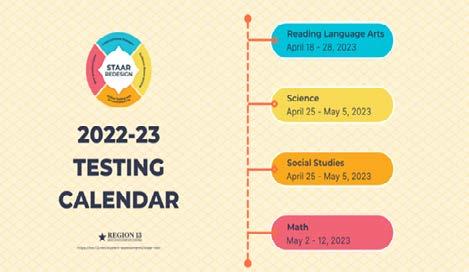
will need to be manually scored. The first week of this window overlaps with the last week of the RLA assessment window.
Math
Math assessments will be administered May 2-12, 2023. This is one week earlier than in the past for the 3-8 STAAR math assessments and is comparable to the previous Algebra I administration windows. There are no items that must be manually scored on the math STAAR assessments, which is why they are last on the testing calendar. The first week of this window overlaps with the last week of the science and social studies window.
Good luck Texas Teachers!
Teachers Making a Difference | Issue 9 April 2023 3
Editor’s letter
Designers: Rivette Pena

Stephane Bowker
Contributing Photographers and Stock Libraries:
Adobe Stock
Unsplash
Andy Dominguez
Advertisements: Dr. Cathy Coker
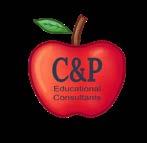
Marketing:


Alicia Grace
Thank you to Stephane Bowker at Working Dog Resources for providing tailored training for the layout of Teachers Making a Difference.

Teachers Making a Difference Issue 9, April 2023 4 CONTENTS 28 Merit Pay: Is it now time topull back high stakes testing along with ‘Merit Pay’ as a reward? 6 14 22 Vowel Clustering Teaches Handwriting part 2 Body Counts Continue- Stop It Comic Book Chemistry Published by: C&P Educational Consultants Editors: Dr. Cathy Coker
Rivette Pena








Teachers Making a Difference | Issue 9 April 2023 5 3 8 16 18 24 34 36 44 Editors Letter STAAR Testing Education RX The Greatest Love of All Brown Bagging It Resume Spotlight Ignorance is Bliss Teacher Author Help My Co-teacher is a Bully
Vowel Clustering Teaches Handwriting Part 2
 by Elaine Clanton Harpine, Ph. D
by Elaine Clanton Harpine, Ph. D
Part 2: Decoding and Handwriting are Connected
I am frequently asked, “Why do you spend so much time on handwriting?” Parents, teachers, and sometimes even students are confused about why I teach handwriting at my reading clinics. I teach handwriting because emphasizing handwriting helps all of my students improve in reading. Neuroimaging research shows that just looking at and identifying the alphabet letters from a chart does not help children learn to read. Memorizing the alphabet song does help students learn to alphabetize. Yet, it still does not help children learn to read. Practicing using letters on a computer, iPad, or other electronic device also does not improve letter recognition or reading skills. On the other hand, writing by hand and correctly shaping alphabet letters does help children improve their reading skills. Why? Handwriting differs from typing.
Keyboarding or typing involves selecting letters. Neuroimaging research shows that when students shape the letters by hand that requires a student to engage their language skills, use their working memory, and to cognitively process or think about all associations with that letter. Therefore, handwriting engages the brain in the same way that reading does. Handwriting requires the student to think and remember the letter symbols. When students type or merely say the alphabet letters orally, they do not engage the same cognitive processes in the brain. Handwriting interacts with letter sounds as the student is writing.
The brain only attaches writing a letter with the sound for that letter when letters are shaped correctly. Therefore, scribbling doesn’t count or teach the brain to identify and recognize the letter
sounds. Scrolling letters across a blank page doesn’t count. Instead, students must write legibly and shape the alphabet letters correctly in order to receive any benefit for reading.
Never use crayons or markers to teach handwriting. Only use pencils.
At all of my reading clinics, I teach handwriting. I use tracing sheets. First, I have students trace the letters to learn the shape of the letters. I have students use three or four different colors of colored pencils and trace over the letters several times. Do not use crayons or markers; they distort the letter shapes. By tracing the letters with colored pencils, the children can tell when they’re on the dots and when they are off the line. I use tracing sheets that have the arrows so that children can learn to make and shape their letters correctly. If the letter is not written correctly, the child erases and tries again. As I tell the children, “it’s important to train our brain to recognize and shape these letters correctly.” With colored pencils, we turn the practice into a game to see what colors we can make as we combine colors while we trace the letters.
Then, the children say and read the letter sounds. Making the connection between letter shapes and sounds is very important in vowel clustering. Next, I have the students do all of their writing on manuscript style writing paper. I continue to emphasize shaping letters correctly.
Teachers Making a Difference Issue 9, April 2023 6
It is important that handwriting and reading be taught at the exact same time. For example, if we are teaching words that use the at sound; we first trace and write the letters. Then, read, write, and spell words that use the at sound: at, cat, fat, rat, mat, hat. We then add these new written words to one of our creative art projects, such as a paper towel tube rocket. We say to fuel the rocket we need 25 new words. These words can be as simple as at, cat, bat. Or the words can be multisyllable or compound words using the same phonemic sound: acrobat, cattle, matter, atmosphere. Each child works at their individual ability level, regardless whether it be with beginning sounds or more complex sounds.
does not show the same connection with cursive writing as it does with block-style writing; therefore, I teach only block-style handwriting.
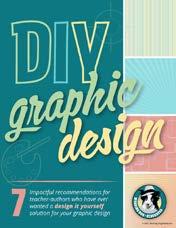
If you have questions, please contact me. I’m always happy to help: clantonharpine@hotmail. com
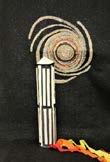

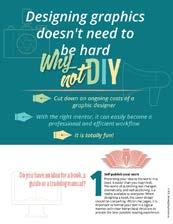
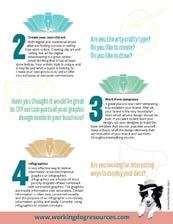
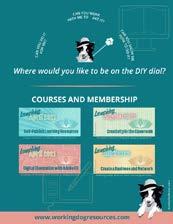 Elaine Clanton Harpine, Ph. D.
Elaine Clanton Harpine, Ph. D.
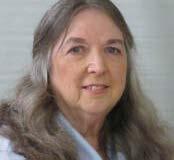
A Saturn V rocket made from pop bottles and construction paper, covered with words that students have captured, is an intrinsic motivator. The project is fun and the students learn new words.
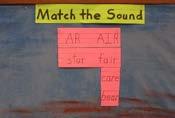
For more about the rocket, see: https://www. groupcentered.com/reading-blog/tutoring-hint7-intrinsic-motivation-is-better-than-extrinsicrewards

Teaching block-style handwriting is essential for teaching reading. We cannot have effective reading without effective handwriting. Research
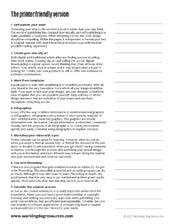
Teachers Making a Difference | Issue 9 April 2023 7 Get your free guide here www.workingdogresources.com
Education Rx: A Podcast That Dives Deep into the Current State of Education
by Hollye Bronson
Students across America are struggling! In October of 2022, the NAEP test scores came back with scores for 4th, 8th, and 12th grades in reading, math and science that reflect historic lows. Did CoVid 19 create learning gaps that have caused American students to lose all of the gains that were achieved during the 1990’s and early 2000’s?
Students across America are struggling with learning gaps post CoVid/remote learning: students in 4th, 5th, and even 6th grade that cannot read or write. Experts are predicting that the current generation of students could experience significant long term effects of these learning gaps if we do not act swifty, and with fidelity.
Teachers are struggling with exhaustion and feeling disempowered. Now is the time to tap into fresh and reimagined ideas around access, engagement, and what are meaningful skills that students need. Looking at world wide surveys on education, the US has yet to break into the top 10 for either best education systems OR highest academic scores. Why is that?

My name is Hollye Bronson. Together, with my co host, Shannon Donnaway, we are taking on hot topics in education through our podcast, Education Rx. We are both educators with almost 45 years in education between the 2 of us. We are using our podcast as a platform to identify hot topics in education and ideas for supporting educators, students and families in making positive changes.
Season 2 is in production and will be released the 1st week of April. This season we are looking at practices of inclusive learning. Each episode we have a conversation with 1 or more experts on a specific topic. We begin this season with the authors of “Inclusive Learning 365:” We explore what inclusion means, as well as ways educators can increase engagement for students immediately. Dr. Andrew Ho of Harvard University, national education testing expert (psychometrician–I didn’t even know what this was at first), explains the NAEP testing and what these scores tell us. Dr. James Robinson of Indiana University provides insight into research
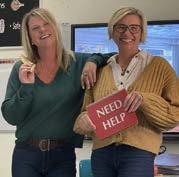
Teachers Making a Difference Issue 9, April 2023 8
that shows long term outcomes for students who participate in inclusive learning, and shares 3 core inclusive formats that produce student success. Sam Kary, founder and CEO of The New EdTech Classroom gives meaningful resources for educators on streamlining their process and creating fun, engaging lessons. Dr. Doug Fisher addresses student centered learning practices and ways to address literacy gaps. Dr. Pedro Noguera talks with us about equity and diversity in the classroom. Dr. Pasi Sahlberg, previous minister of education in Finland and world renowned education reform expert, shares how Finland created full inclusion in their schools and reformed education with practices that work!
If you haven’t listened to us before, check out our first season now. You can find us wherever you listen to your podcasts (Spotify, iHeart Radio Stitcher, Povdine, Google, Apple, Amazon, Wisdom and more). This LINK will take you to our podcast on Spotify. (https://open.spotify.com/

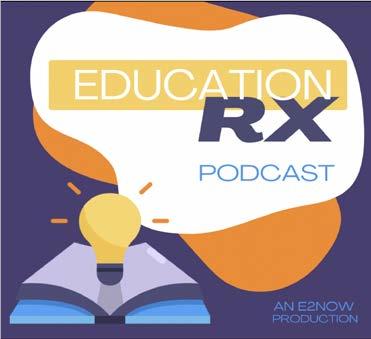
Teachers Making a Difference | Issue 9 April 2023 9


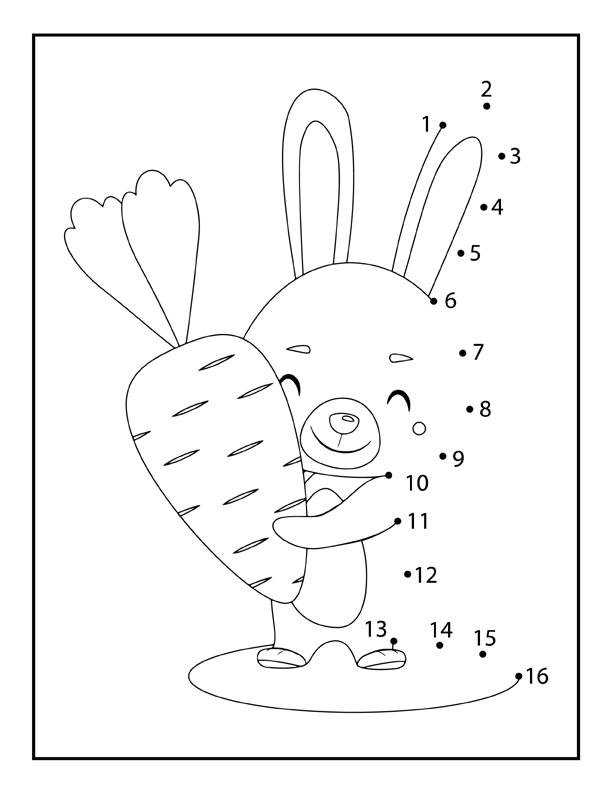
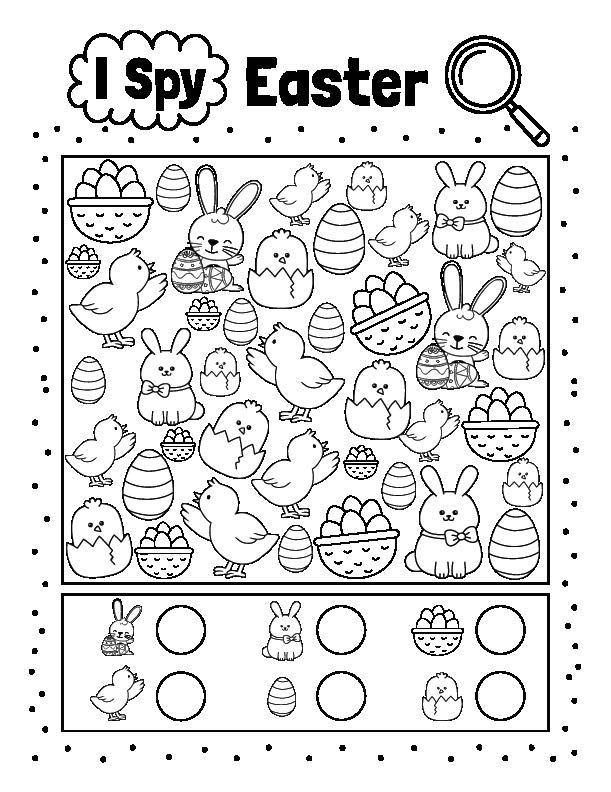
Body Counts Continue STOP it!
by Paul Ruez, M. Ed.
Feeling numbed by the increasing “body count” in American’s War-on-Civility?

As a US Army combat vet, I am familiar with body counts. War taught me to learn, teach and practice “less bloody ways of resolving differences.” This learning curve is mission critical.
Serving as a high school teacher I integrated these skills into my state approved curriculum. Now retired, I give this curriculum to others who share this concern. This includes Conflict Resolution Skills.
Start with the person in the mirror and extend out to your family, friends, churches, schools and workplace. Replace the excuses with action and choose to resolve differences without hurting others.
We have so many well-meaning students, parents, teachers, and others who would love to learn less violent conflict resolution skills, I believe there is hope. In my Workplace & Restorative Skills curriculum I package these skills together under the subsets of: Critical Thinking, Decision Making, Conflict Resolution and Job Finding.

A critical part of my proposal is, identify what is working to teach critical thinking, decision making and Conflict Resolution on the different campuses. Data base results and incentify the application and celebrate the successes e.g. Kennedy Center type events and smaller ones too. People are so hungry and are literally dying for words and actions that work to heal, not harm. Such words and actions are positively contagious. It will spread.
Ready to reduce the number of people choosing to use guns and other forms of abuse to ‘get their way?’ How? Learn, teach and practice less hurtful behavior skills which builds bridges of understanding (not walls) between people.
I continue to share this plea with fellow teachers, superintendents, school board members, students, parents, officials and people of influence around the world.
Teachers Making a Difference Issue 9, April 2023 14
I realize the availability of military grade weapons are part of the problem BUT we need to educate the trigger pullers to realize that other responses are more effective and satisfying than a blood bath. Such responses are known and available. I’m honored to share where there is interest.

As I wrote to my elected state and federal representatives, I realize that from the official levels certain protocols are maintained. There are always other doors and windows. All ideas and suggestions are welcome. I am ready, willing and able to help when you are.
Ready for action?
Share this link: https://bit.ly/STOPTheBodyCountsTMAD
Use the Conflict Res Play as a performance (big or small) or as an icebreaker. https://bit.ly/LearnConflict-Res-The-Play
Learn & Teach it: https://bit.ly/4stepConflictRes
Submitted by:
Paul Ruez, M.Ed.
Retired Oceanside High School CTE teacher

Workplace & Restorative Skills Advocate
RuezArt@gmail.com
Former US Army Combat Correspondent & Photographer
221st Signal Co. America’s War in Vietnam

* NY Times best selling author Thom Hartmann

Teachers Making a Difference | Issue 9 April 2023 15
Why, would people refuse to act when semiautomatic weapons designed for the battlefield are used against our children?”* “And, why would we not make learning these Restorative & Workplace Skills the highest priority and designate them as ESSENTIAL SKILLS, not “soft skills?”
Greatest Love of All!
by Dr. Cathy Coker
Teachers, it’s that time of the year again. The dreaded STAAR Tests. These begin April 18 and will continue through May 12, 2023. This article is not about tests. It’s also not about what you must do or should have done to prepare for these exams. This article is about acknowledging that you have done your best. You taught them the strategies and content that they need. Some grasped the teachings, some didn’t. Whichever the case, you did your best.

What we should have also done is teach them how to love themselves. When a child has selflove, they will have the confidence to face the Goliath’s in life that will confront them. No, I am not asking you to teach another course on self-love, I am asking you to give them the encouragement to love themselves and all their quirks. We are all different and that’s what makes us special.
This article is about love. It’s about loving yourself. You should never identify your self-worth with your students’ exam scores. That’s wrong, from the get-go. That’s why the nation is facing a teacher crisis. Many teachers have left the one job that made them happy because some people that have never set foot in a classroom are making up curriculum and laws that tell us how to do our job and if we don’t match up, we are not good teachers.

As you well know there are many challenges ahead for our students. We know because we are in the trenches with them. We have experienced those obstacles as well. Let’s teach them those strategies.
What we should have done is prepare our students to do their best for any exam that life brings them. Take a deep breath and know that you have done a great job. Teaching is not only about passing tests, but also about teaching them to love themselves. How many of us have had that one kid that just has issues. There will be some teachers that have said, “well I am not the parent”.
Teachers Making a Difference Issue 9, April 2023 16
No, you are not the parent but you are their only and last hope to a better life. You might be the only one that shows them the love that they so much need in their life. We are life changers.
Teaching is not just about academia; it’s about teaching the child who they are. They are our future. The lyrics to the song by Whitney Houston, “The Greatest Love of All”, inspires me to do my job even though my students are not listening to my teachings.
I do hope and pray that I did teach them how to love themselves. You are that one teacher that has listened and guided little Mary or Joe to be the best they can be, just because you said, “you are so smart, and I believe in you.”
Take a moment and listen to the song because you are loved by many.
https://www.youtube.com/watch?v=Iej48IlYHz0
Lyrics
I believe the children are our future
Teach them well and let them lead the way Show them all the beauty they possess inside
Give them a sense of pride to make it easier
Let the children’s laughter remind us how we used to be.
Everybody searching for a hero
People need someone to look up to
I never found anyone who fulfill my needs
A lonely place to be
And so I learned to depend on me.
I decided long ago
Never to walk in anyone’s shadows
If I fail, if I succeed
At least I’ll live as I believe
No matter what they take from me
They can’t take away my dignity.
Because the greatest love of all Is happening to me
I found the greatest love of all
Inside of me
The greatest love of all
Is easy to achieve
Learning to love yourself
It is the greatest love of all
I believe the children are our future
Teach them well and let them lead the way
Show them all the beauty they possess inside
Give them a sense of pride to make it easier
Let the children’s laughter remind us how we used to be.
I decided long ago
Never to walk in anyone’s shadows
If I fail, if I succeed

At least I’ll live as I believe
No matter what they take from me
They can’t take away my dignity
Because the greatest love of all Is happening to me
I found the greatest love of all
Inside of me
The greatest love of all Is easy to achieve
Learning to love yourself
Is the greatest love of all
And if, by chance, that special place
That you’ve been dreaming of Leads you to a lonely place
Find your strength in love
Teachers Making a Difference | Issue 9 April 2023 17
Brown Bagging It
Root Beer Pulled Pork

INGREDIENTS
• 1 (2 lb) pork tenderloin (pork shoulder or butt can also be used)
• 1 can (12 oz) root beer
• 1 bottle (18 oz) barbecue sauce
• 8 hamburger buns
Directions

1. Place the pork tenderloin in a slow cooker and pour the can of root beer over the meat. Cover and cook on low for 6 hours or until pork shreds easily with a fork.
2. Remove cooked pork to cutting board, and drain and discard the root beer. Shred pork and return it to the slow cooker. Pour the barbecue sauce over the pork and stir to combine. Serve immediately or keep warm in slow cooker until ready to serve. Serve on hamburger buns.
3. Enjoy! Please submit any recipes you would like to share by sending them to articles4magazine@gmail.com subject: recipes visit www.testprepcertification.com for submission requirements
Teachers Making a Difference Issue 9, April 2023 18


Empowering Educators Curriculum Ideas Career Counseling Emotional Support Classroom Management T-Tess Strategies Contact Information drcathycoker@gmail.com (210) 313-7739 Need help?
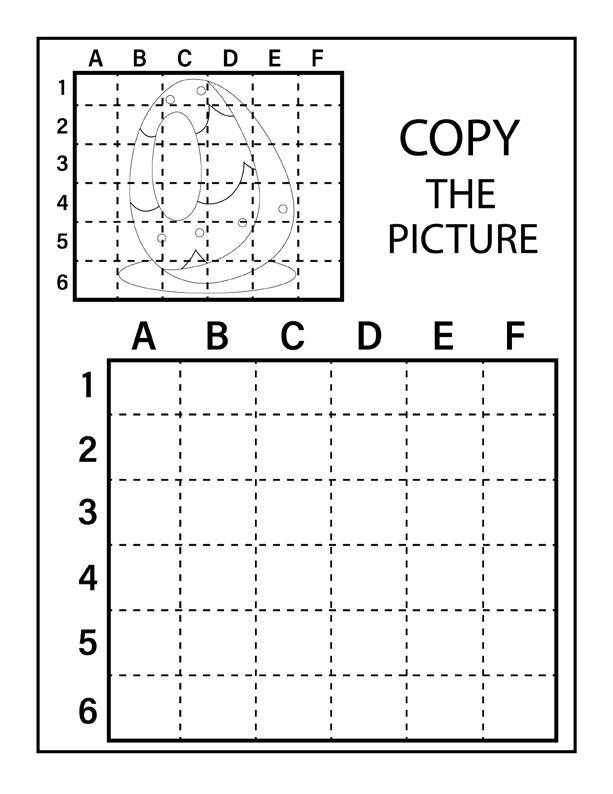
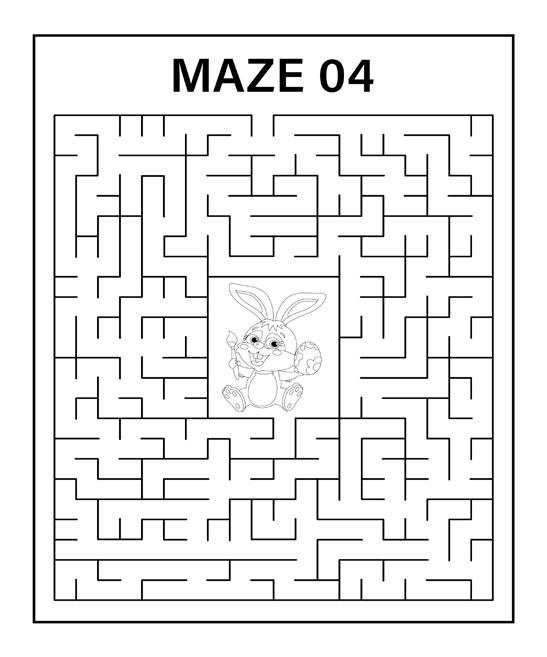
Teachers Making a Difference | Issue 9 April 2023 21
Comic Book Chemistry
by Dr. Colleen Kelley
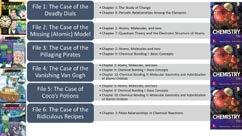
Think chemistry is boring? Think again! Dr. Colleen Kelley has created a chemistry comic book series filled with colorful characters and exciting storylines that translate complex chemistry into animated mysteries. Her comics and unique imagination have turned the Periodic Table into a playground of chemical adventure and have allowed elementary school students to master concepts often taught at the college level.
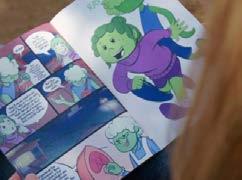
Colleen was a first-generation college student who kept following her flow of having fun doing chemistry research. Fast forward 30 years later to the tail-end of her career teaching chemistry in higher education, Colleen finds herself captivated by the question, “Why do my students think chemistry is SO hard?” Dr. Kelley now conducts her research in Chemical Education to uncover this mystery. What she has discovered is that learning chemistry is very much like learning music. Both disciplines are dependent on the interpretation of symbols and the development of fluency with these symbols. We know that the best time to learn music is between ages 6 – 10 when the brain has the plasticity to make the neural connections necessary. We NOW know, through Dr. Kelley’s research, that this is also the best time to learn chemistry.
Dr. Colleen Kelley is the Creator and Founder of Kids’ Chemical Solutions (www. kidschemicalsolutions.com) which is a comic-book based chemistry curriculum intended for kids ages 8 – 108. Her journey as a chemist began at The University of Richmond where she received her B.S. in Chemistry. She fell in love with the world of discovery and research and wanted to continue to explore more chemistry. She headed to Penn State University and dashed through graduate school receiving her Ph.D. in chemistry at the age of 24. She was having so much fun doing chemistry research that she accepted a Chateaubriand Postdoctoral Fellowship in

Teachers Making a Difference Issue 9, April 2023 22
Strasbourg, France with Nobel Prize winner JeanMarie Lehn.
Dr. Kelley recently finished teaching for 10-weeks in 4th and 5th grade classrooms using her chemistry comic book series. The kids were excited and embraced learning through this platform. What’s next? “My WHY is to make learning chemistry fun, accessible, and inclusive so that it becomes a ‘normal’ part of a child’s education.”
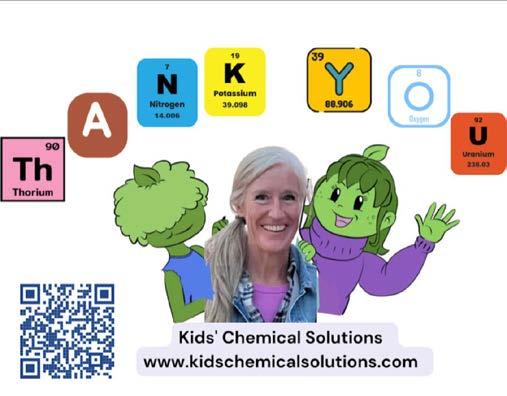
Watch this 6-minute PBS documentary (link below) that highlights the vision and journey of the chemistry comic books created by Dr. Colleen Kelley.
https://youtu.be/wDmkJzcm4Pc
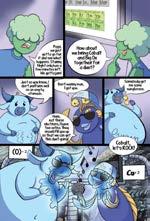
Teachers Making a Difference | Issue 9 April 2023 23
spotlight resume
I have 30 years of experience in education: Elementary through College level . I have Ph.d in education .
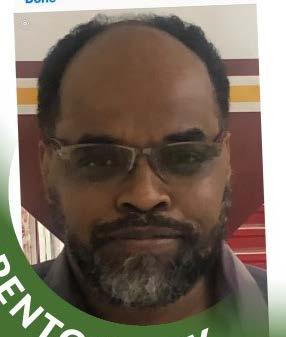
I’m looking to leverage my years of experience and knowledge towards a career in higher education or a related area for the purpose of adding value any prospective organization.

Leland Sanford
OVERVIEW: Dynamic thought leader and highly qualified education professional with Doctor of Philosophy in Education and 35+ years of productive expertise in learning administration and educational development Draw upon comprehensive and diverse experience in effectively enriching the learning experience for students in all academic areas, together with effectively implementing cutting edge technology within conventional and online classrooms Motivational, solutions-oriented with a passion for innovation; and proficient in multiple instructional techniques to promote student learning. Effective at conducting learning evaluation and executing initiatives to further mission, vision, and goals to support integrated distance learning for higher education through industry-leading best practices
SUMMARY:
• Highly skilled in driving educational programs using data insight to increase learning effectiveness, improve student performance, and educate program leaders on key deliverables.
• Engage in weekly online asynchronous discussion forums with learners to encourage further discussion and provide resources to help inspire learning events and further learning on topic
• Leverage proven expertise in educational engagement through results-driven instruction to deliver significant results
• Work proactively to ensure best service and logistical coordination to meet program needs
• Assess and optimize processes to support education requirements through proactive solutions.
• Acknowledged as a compassionate educator and leader who identifies capabilities within each student to maximize their potential
KNOWLEDGE
• Program Management
• Curriculum Development
• Technology Management
• Interpersonal Engagement
• Student Career Counseling
• Student Relations
• Population/Needs Assessment & EXPERTISE:
• Academic Intervention
• Mentorship & Training
• Relationship Building
• Strategy Development
• Applied Behavior Analysis
• Growth Impacts Monitoring
• Student Guidance & Coaching
• Continuous Improvement
EDUCATION: WALDEN UNIVERSITY Minneapolis, MN
Doctor of Philosophy in Education Conferred 2022
Master of Science in Philosophy Conferred 2020
• Magna Cum Laude: Ph.D. and MA Programs
• Dissertation: Relationship between Kindergarten to Grade 8th
• Principal Epistemological Beliefs and School Success
CHICAGO STATE UNIVERSITY Chicago, IL
Master of Science in Education Conferred 1996
• Magna Cum Laude
DEPAUL UNIVERSITY Chicago, IL
Bachelor of Science in Political Science
Conferred 1983
2002 to Present EXPERIENCE: Elementary Educator Chicago, IL
PROFESSIONAL CHICAGO PUBLIC SCHOOLS
Highlights
• Leverage technology and interactive educational resources to provide engaging instruction and support activities towards achieving stated objectives.
◊ Create and implement engaging lesson plans in accordance with district guidelines while focusing on industry standards to promote education objectives alignment.
◊ Apply innovation and creativity to recommend and develop new resources and new uses of existing infrastructure to support learning activities.
◊ Track and report academic and behavioral growth while ensuring emotional and mental well-being of students for more positive results.
KENOSHA UNIFIED SCHOOL DISTRICT
1997 to 2001
Science Educator Kenosha, WI
• Interacted with students, staff, and administration; provided resources to help inspire learning events and student comprehension.
Highlights ◊ Implemented Dimensions of Learning Curriculum Design.
◊ Utilized research based techniques for students engagement with focus on STEM (Science Technology Engineering Math).
EARLIER CAREER: BENJAMIN MAY ACADEMY/KENNEDY-KING COLLEGE
Middle College Educator/Student Counselor
• Operated as a Coordinator of Educational Program for Inner City Youth.
CITY COLLEGES OF CHICAGO
Adult Training Literacy Specialist
• Served as a Curriculum Designer Specialist, Student Recruiter, and Advisor.
1989 to 1996
Chicago, IL
1982 to 1989
Chicago, IL
Teachers Making a Difference | Issue 9 April 2023 25
leland3467@gmail.com | (773) 297-7297
Journey To Real Vision was founded by Chris Shaffer who spent 40 years working in a corporate environment and has over 20 years in a coaching capacity. Chris specializes in self-discovery. When you don’t know who you are, you don’t know your worth. You have to make time to understand more about yourself. So, why work with me?
You will discover at least 1 new thing about yourself during our initial free discovery session;
I provide additional resources for deeper self-discovery that no one else offers;

I ask the right questions to help you maximize your potential – you will see clear results by your 3 rd session; and
I am relatable, empathetic, and a deep listener.
I offer 1-2-1 coaching plus mini-courses, workshops, and a membership program WOW “Women of Worth” which includes the self-paced YOU-niversity that has over 50 courses.
I specifically created an educational course that is tailored specifically for individuals working in the education industry. Below is an outline of the mini-course:

You can schedule a free self-discovery call by visiting www.journeytorealvision.com and clicking on the purple button directly from the main page of the website. Included in your free session is a Strengths + Core Values assessment.
If you’re experiencing burnout, exhaustion, frustration, and a lack of direction in your career, please make time to schedule an appointment. I will support, guide, and encourage you to discover more about yourself. If you have questions, please feel free to email me: chris@journeytorealvision.com.

Teachers Making a Difference Issue 9, April 2023 26

Teachers Making a Difference | Issue 9 April 2023 27
Merit Pay: Is it now time to pull back high stakes testing along with ‘Merit Pay’ as a reward?
Dr. Hans Andrews
This is a multi-part article. This is part 2 further installments will be in upcoming issues.
Some union responses to merit pay and evaluation
Mary Futrell (1986) was interviewed on her views on merit pay when she was president of the National Education Association. She stated the Association’s opposition to merit pay because it had not previously worked and it proved to be discriminating (pp. 59-60)
Another former American Federation of Teachers (AFT) President, Albert Shanker (1985) pointed the finger at administrators for not doing the job on removing incompetent teachers and allowing them to remain in their schools:
Review of Literature
Merit pay historical and recent research
A study by the Educational Research Service (ERS) in 1979 determined that out of the 3,000 American schools they surveyed only 6.4 percent had attempted merit pay for their teachers. They found that most had dropped them after trying them out. The main reasons cited for dropping the programs were
(1) figuring out how to evaluate teachers fairly;
(2) teachers dislike of merit pay and
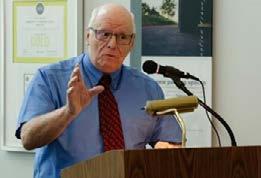
(3) declining teaching morale. In numerous schools surveyed they found that faculty unions
had negotiated merit pay language out of their contracts.
In an extensive study that surveyed 1,000 current classroom teachers’ a summary of their feedback was received in the areas of
(1) teacher evaluation;
(2) how teachers want to spend their time at work;
(3) teacher retention; and
(4) financial incentives preferred (Education for Excellence, 2018).
In the arena of teacher evaluation: The top three teacher priorities were
(a) measures of student academic growth over time= 64%;
(b) students’ daily work/projects/portfolios = 45%; and
(c) classroom observation by administrators= 35%.
Students’ standardised test scores were selected by only 10% of the teachers and this was second from the bottom on the way’s teachers felt they should be evaluated.
How teachers want to .spend more of their time at work: The top three choices selected here were
(a) collaborating with other teachers = 80%;
Teachers Making a Difference Issue 9, April 2023 28
(b) pmiicipating in professional development= 56%; and
(c) communicating with parents/guardians = 50%.
Collaborating with other teachers has been strained in large numbers of schools that have moved into inauguration of merit pay.
Teacher retention and motivating retention: Teachers identified
(1) a higher salary as their number one retention suggestion to motivate and to stem attrition and reward teachers for excellent = 75%;
(2) less standardised testing= 34%;
(3) more supportive administrators =21%.
The second item of less standardised testing fits into what was found in teacher evaluation above where it was only selected as a source of evaluation by 10% of the teachers.
Financial incentives preferred: Merit pay was not an item listed by any of the teachers looking at various financial incentives that teachers favor.
Recent outcomes on Texas and Tennessee merit pay plans
There are a few studies that have been conducted in recent years to show the outcomes received from merit and/or performance pay programs
The National Center on Performance Incentive summarized the Texas Educator Excellence Grant (TEEG) that involved 50,000 Texas teachers in I, 148 schools in the state. The outcomes for 140,000 or more students on the Texas Assessment of Knowledge and Skills testing concluded there was no systematic evidence that TEEG had an impact on student achievement gains. The Texas State Teachers Association said, “we predicted the program would be a flop, and that’s what it turned out to be” (Stulz, 2009)
Tennessee enrolled 300 middle school mathematics teacher volunteers in a three year randomized experiment program at Vanderbilt University. The idea behind this program was to find out if large
monetary incentives could produce significant boosts in student test scores and also encourage these teachers to become more effective in their teaching.
OUTCOME:
There were only two small positive findings. Small positive results were found with fifth graders in both the second and third years. On the other hand, there were no positive effects for the students in the grades 6-8 in any of the three years of the experiment. This program was ended at the end of the three years (Education Week, September 21, 2010).
Some international experiences: Japan and England
Japan
Shinbun (2011) discussed some concerns since Japan adopted merit pay as part of their evaluation back in 2011. The latest results pointed to the fact that it was not working effectively. One principal said he gave all his teachers a ‘C’ rating because to do anything less would require him to present an evidence-based case. The ‘C’ was the middle grade between ‘A and F’ for ranking his teachers. It also spoke to this being a compromise in working to reconciliation with the teacher union that was not in favor of having teachers differentiated in teacher effectiveness. The Nagano Department of Education had a total of 16,767 our of 17,000 teachers evaluated with ‘C’ as their evaluation grade.
England
The chief inspector of schools was put in the position of having to ‘consider whether there is a correlation between the quality of teaching and salary progression.’ The Office for Standards in Education made an announcement that salaries for teachers could be frozen after the school inspections are made. Government officials in some areas wanted the reforms to discourage weak teachers from staying in the teaching field in England. The National Union of Teachers general secretary, Christine Blower, saw this movement as being detrimental to the teaching profession and saying, ‘teaching is a collegial profession and this is a divisive, unrealistic and simplistic way of
Teachers Making a Difference | Issue 9 April 2023 29
looking at how schools work.’
Another report titled, Great Teachers: attracting, training and retaining the best, came out in May of2012.from The Education Select Committee. Their recommendations for performance related pay were centered on having these payments for the reason of increasing the attainment of students by rewarding and retaining the most ‘effective’ teachers in the profession.
Gates Funded Teacher Evaluation Reforms Program
Kraft (2018) provided summary points from a RAND Corporation report on the Gates-Funded Teacher Evaluation Reforms program including, ‘the results are disappointing’. This program selected three school districts and four charter management organizations in the Gates Intensive Partnership (IP) program. It was a program from 2009 to 2015 with a funding commitment of$575 US million dollars. The total cost of the seven years of the program was over $1 billion US.
The schools were selected due to their strong commitment to reforms of major changes in teacher recruitment, better screening of candidates, improved evaluation of teachers and new compensation plans for teachers.
The report by RAND found that formative and summative evaluation of teachers, one of the major tenants of the program, proved to be too difficult for the schools and their administrators. The evaluations identified very few teachers who would be rated below the Proficient level. In fact, as the program moved ahead more teachers received the Proficient level. This was in direct conflict with what was expected with a stronger and more efficient evaluation system. There appeared reluctance by administrators to move toward dismissing less than proficient teachers and of providing significantly improving their evaluation processes.
One other key goal was to be boosting the retention of teachers through the awarding of bonuses and career ladder options. The findings provided evidence that the modest bonuses of a few thousand dollars did not, indeed, provide the motivation for teachers to improve. Significantly higher merit pay
rewards had been promised in the program.
Race to the Top (RTTT) Tenets and Findings
The Race to the Top (RTTT) program in the United States included the Payment by Results on testing improvements in scores as a major tenet in its reward system. It provided for the offering of pay increases in the form of merit pay for those teachers whose students showed significant improvement on the high stakes tests being instituted by states and the federal government. It appears that little research on the success of merit pay systems in American had been used to arrive at this merit pay initiative.
It will take several more years to more completely identify the overall results that came out of the Race to the Top (RTTT) program from 2009 to 2016. Initial results found by Aldeman (2017) found some positive moves in the areas of teacher performance evaluations. These appear to have contributed to improved student achievement in some school districts but progress was uneven.
1. The changes were unpopular and caused some backlash over these changes and others over the last few decades.
2. In the New Teacher Project (TNTP) 99 percent of the teachers were rated as ‘satisfactory’ and perfonnance was ignored altogether when making decisions about recruitment, professional development, promotion, pay, or dismissal.
3. Teacher evaluation included requirements to include objective measures of student achievement in testing scores. Evaluation plans nearly tripled in the six years starting in 2009 from 15 to 43 states. Teacher evaluations were now used in tenure decisions in 23 states versus O states previously.
4. The incentives promised (merit pay) were smaller than expected as they were shared among larger numbers of teachers and principals which made them less effective.
5. The program was not communicated effectively to teachers and principals and mass confusion about who would be eligible for the awards and how large the awards would be for
Teachers Making a Difference Issue 9, April 2023 30
the teachers and principals.
6. While the requirements succeeded in making states adopt evaluation reforms there were few levers that would make states implement them well.
7. The number of teachers receiving a lessthan-satisfactory rating hardly budged in percentage in most states after these new systems began being implemented.
8. This program overestimated the field’s capacity to improve teacher evaluation systems. Few people have been adequately trained to help provide evaluation and feedback to teachers on how to improve.
9. Few teachers were dismissed with the new systems.
10. Parents started to fuel a backlash against testing in general and many parents started to ‘opt out’ of statewide testing for their children.
Hess (2018), in his review of former Secretary of Education in the U.S. Arne Duncan’s book on his work during the Obama administration, is very critical about the accomplishments that Duncan outlined:
National Assessment of Educational Progress (NAEP) had been showing significant growth over the previous decade. Seven years later these NAEP scores were stagnating. The latest research showed teacher evaluation improvements to be a failure. The NAEP gains actually fell between 2013 and 2017. Duncan, by tying teacher evaluation to student test scores, was highly criticized by the former Secretary of Education Lamar Alexander.
Major Challenge to the High Stakes Testing Movement
On the heels of these mixed results and failures of both the Obama administrations’ Race to the Top and The Gates Effective Teaching Initiative came a book challenging the whole testing movement in the United States. Koretz (2017) authored his book titled The Testing Charade: Pretending to Make Schools Better. This Harvard University researcher identifies what dominates everyday life in schools today with the simple answer of ‘tests’ (p. 21). He
presents his concerns on how much time is spent on testing and testing preparation including shortening time in other school subjects and using that time in test preparation. Koretz also presents how Don Campbell’s Law has worked its way into American school systems over the years. Campbell’s law is stated as follows:
The more any quantitative social indicator is used in social decision making, the more subject it will be to corruption pressures and the more apt it will be to distort and corrupt the social processes it is intended to monitor (p. 30)
In showing the warnings schools need to be aware of in testing Koretz quoted E.
F. Lindquist who was one of the first developers of standardised testing. In 1951 Lindquist stated the following:
The widespread and continued use of a test will, in itself, tend to reduce the correlation between the test series and the criterion series (the later behaviour, outside of the testing situation, that is our real concern) for the population involved. Because of the nature and potency of the rewards and penalties associated in actual practise with high and low achievement test scores of students, the behavior measured by a widely used test tends in itself to become the real objective of instruction, to the neglect of the (different) behaviour with which the ultimate objective is concerned (p. 39).
The result is core inflation according to Koretz. He also reported how the emphasis on testing has caused widespread ‘cheating’ by teachers, administrators, and others concerned with trying to show testing increases.
Koretz suggested schools get back to evaluating teachers on their teaching practices and go back into the classrooms with ‘unscheduled observations’ where the actual teaching can be evaluated. The testing, Koretz mentioned, essentially replaces what should be the curriculum for courses.
Part 3 in May Issue. .
Teachers Making a Difference | Issue 9 April 2023 31

Teachers Making a Difference Issue 9, April 2023 32
Teachers Making a Difference | Issue 9 April 2023 33 Puzzle #1 PRANK L X E L Z O O B M A B P Q P Q I Q D U P L I C I T Y W J V H S F E C N O I T P E C E D Q D W I C C F O O P S I G Q T S I I C R L Y I L J M A L I U W W N T A M O O O P G T E O K N J D I F A Y K O M R F V B C O N L T G H E S T I R E L O Y G Y E I C S T A C E I U N Q X X Q P O H O E K T H F H U M B U G H U R H E N C F A R U S E T Z O S C R U S F A K E R B W H B N A Y O I A D M I S C H I E F Y C C M V V M O U T I H B O B G E E Y H D O O H E S L A F H BAMBOOZLE FALSEHOOD MISCHIEVOUS BLUFF FARCE PHONY CHEAT FICTITIOUS PLOY CON GAG RUSE COUNTERFEIT HUMBUG SHAM DECEPTION IMPOSTOR SPOOF DUPLICITY JOKE SWINDLE FAKER MISCHIEF TRICKERY
“Is Ignorance Bliss?”
by Elizabeth Breau, Ph.D
This question is a common persuasive essay prompt because it requires students to consider the implications of uncomfortable knowledge. Are you better off not knowing you are going to die in three weeks? What if you didn’t know you were adopted?
Usually, my students argue that knowledge is better than ignorance because it allows you to plan, work towards solutions, and avoid future errors. You can’t solve a problem if you don’t know it exists. However, in much of the United States today, knowledge is under attack, and educators are under pressure to stop teaching the truth. Concerns about students being brainwashed by liberal ideology have motivated many of these efforts, and some adults have claimed that white students might be uncomfortable during classroom discussions of America’s historic treatment of non-white people. Is sparing some students discomfort a legitimate reason to erase the experiences of others?
When I taught women’s studies at Vanderbilt in the mid-1990s, I had trouble persuading my students that topics like domestic violence and rape were worthy of serious discussion. The first time I taught the class, a group of students responded to a reading assignment about domestic violence by arguing that more women beat up men than the other way around. They refused to hear that domestic violence is a common phenomenon in our culture, and I did not know how to address their refusal.


The second time I taught the class, the topic of sexual harassment caused a similar uproar. This time, however, I didn’t try to persuade those who questioned the veracity of the reading. Instead, I called on a female student who had raised her hand. She said, “I know that sexual harassment happens because it happened to me.” She related her story, which involved a male high school debate competition judge and a comment about her legs. When someone asked what happened, she said, “I reported it, and he got fired.” Not only

Teachers Making a Difference Issue 9, April 2023 34
were all the skeptics silenced, but another girl also raised her hand to share an experience in which she and a female friend were bullied by two big guys into giving up their front row seats at a Vanderbilt basketball game.
My class was outraged by this story of bullying. All aspects of the situation were analyzed: the girls’ inability to speak up for themselves or ask a security guard for help, what they could have done or said instead of giving up, and why they hadn’t felt entitled to defend what was theirs. In fact, the class kept returning to the topic in subsequent classes, and several of them wrote insightful essays about how the stories of their classmates had affected them. Their initial denial of the uglier aspects of male/female relationships could not withstand the lived experiences of their classmates.
Now, flip that story around so that it’s told from a non-white person’s perspective. I once had a Hispanic student who shared how he felt when people avoided sitting next to him on the bus. The class determined that his ski cap was the culprit because the combination of brown skin, a hoodie, and a ski cap made him look scary. A few weeks later, I boarded an overcrowded NJ Transit train and resigned myself to standing for the hour-long ride home. As I looked down the length of the car past the dozens of standing passengers, I saw that there was one open seat that no one else would take--next to a dark-skinned man in a ski cap.
I went and sat down.
After that, I realized that I didn’t need to persuade my students of “the truth.” Instead, I only needed to provide them with the tools to determine that truth for themselves, tools that can work just as well in a conversation about the harmful effects of racism. For example, students who think that “white privilege” is an invention of “wokeness” might reexamine their views if they heard about how it separates their lives from those of non-white people. I know I will always remember my white classmate from Texas who said that black people in her town were expected to step off the sidewalk to allow white people to pass: for the first time, she realized that never being forced to stand in the mud for someone else’s convenience was a form of white privilege in her hometown.


Elizabeth Breau, Ph.D., is a private English tutor and the author of History According to SAT: A Content Guide to SAT Reading and Writing. Her website is historyaccordingtosat.com. She can be reached at elizabeth.breau@gmail.com.

Teachers Making a Difference | Issue 9 April 2023 35
by Dr Cathy Coker
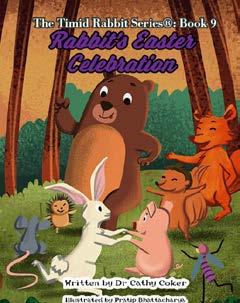


Teacher Authors Submit Teacher Author information to articles4magazine@gmail.com Subject: Teacher Authors visit www.testprepcertification.com for submission requirements
All excerpts are taken from this delightful children’s book Rabbit’s Easter Celebration the Timid Rabbit Series ®. Available on Amazon
Teachers Making a Difference | Issue 9 April 2023 37 Name: Date:
K E S Y D S V A I M F P G X C F K H R R O F U I N O I T A R B E L E C S Z N L G Z C R L Y W V G L O T M P F E R B A H T T W I Q S E M G R Q Q K M L Q P K N Y R S M Y Z L A W R P D X T K S G B D W J N F R U T D O Y C T W E M P N T Y T J B U A Q Q E E J U S I G D W N R A R G S N O D E Z Z H M N T I G M D C Z O S F C E Z T F R T H A M R M O S D U D R B F N R L N Y L E T R N I Y C T L P A D O O B U A D N Z J Y Y Q G A K D R D U G O E U D I E W S E S K X J J O U C C D A E I C Y U T K K A D Z R Z Q S Z K P E T A E B S G G E W G E Y R T M E B K R V M E N S C N B K B V F L M T D T X H D N L U F R O L O C G I N I V A W M O W J H S P P D P U O L C H M R T Z D A D O S O R B K G M U N G J A W S H R W Q M P G D N P W K L Q X I Y V O V O R J H A M I W D D S A I F U G E X O N O J K I S S W Y W A H T Z S B I U K N W Q T S R E D Y L C J A H I J O Q T J J G L I P J F Z Z E P J E M I I J N C T W C A E U L L A J U R W Y V V U V H O Y L K D X I N C O R K M Y N F W Z O O J A B A C V S E Z W N F F I C X D A W Y G P G V G P R V P N L C D Q I V O U J Z O P D D H F D F K Z T W D X U C N F J C D O B W R J U L B J E W J P M S V H P M D C V T H T T L O K F S R G celebration spring
munched camper
Rabbit's Easter Celebration
colorful grass hidden overnight wondered
sandwich duckling delicious carrot eggs bear easter rabbit critter treats basket
Name:
Rabbit's Easter Celebration
Teachers Making a Difference Issue 9, April 2023 38
BTCOERNLAIE
PSNIGR
LCRFULOO
SAGSR
DIHDNE
TNHOREGIV 7. DOEWEDNR 8. DMUCEHN 9. REAPCM 10. WNACSHDI
GUCKNDIL
UISCEIDLO
OCRATR
SGEG
EABR
RESEAT
TAIRBB
REITCTR
KSBTEA
1.
2.
3.
4.
5.
6.
11.
12.
13.
14.
15.
16.
17.
18.
19. TTEARS 20.
Word Bank eggs colorful treats celebration basket munched sandwich easter carrot delicious bear wondered grass overnight hidden spring camper duckling critter rabbit Date:
Rabbit's Easter Celebration

Roy R. Estrada RR E Accounting Tax Services Business Start Ups ph: (210) 723-5389 email: roy.estrada84@gmail.com Name: Date: Rabbit's Easter Celebration K E S Y D S V A I M F P G X C F K H R R O F U I N O I T A R B E L E C S Z N L G Z C R L Y W V G L O T M P F E R B A H T T W I Q S E M G R Q Q K M L Q P K N Y R S M Y Z L A W R P D X T K S G B D W J N F R U T D O Y C T W E M P N T Y T J B U A Q Q E E J U S I G D W N R A R G S N O D E Z Z H M N T I G M D C Z O S F C E Z T F R T H A M R M O S D U D R B F N R L N Y L E T R N I Y C T L P A D O O B U A D N Z J Y Y Q G A K D R D U G O E U D I E W S E S K X J J O U C C D A E I C Y U T K K A D Z R Z Q S Z K P E T A E B S G G E W G E Y R T M E B K R V M E N S C N B K B V F L M T D T X H D N L U F R O L O C G I N I V A W M O W J H S P P D P U O L C H M R T Z D A D O S O R B K G M U N G J A W S H R W Q M P G D N P W K L Q X I Y V O V O R J H A M I W D D S A I F U G E X O N O J K I S S W Y W A H T Z S B I U K N W Q T S R E D Y L C J A H I J O Q T J J G L I P J F Z Z E P J E M I I J N C T W C A E U L L A J U R W Y V V U V H O Y L K D X I N C O R K M Y N F W Z O O J A B A C V S E Z W N F F I C X D A W Y G P G V G P R V P N L C D Q I V O U J Z O P D D H F D F K Z T W D X U C N F J C D O B W R J U L B J E W J P M S V H P M D C V T H T T L O K F S R G celebration spring colorful grass hidden overnight wondered munched camper sandwich duckling delicious carrot eggs bear easter rabbit critter treats basket 1. BTCOERNLAIE celebration 2. PSNIGR spring 3. LCRFULOO colorful 4. SAGSR grass 5. DIHDNE hidden 6. TNHOREGIV overnight 7. DOEWEDNR wondered 8. DMUCEHN munched 9. REAPCM camper 10. WNACSHDI sandwich 11. GUCKNDIL duckling 12. UISCEIDLO delicious 13. OCRATR carrot 14. SGEG eggs 15. EABR bear 16. RESEAT easter 17. TAIRBB rabbit 18. REITCTR critter 19. TTEARS treats 20. KSBTEA basket Word Bank spring celebration treats critter delicious wondered hidden grass carrot eggs rabbit duckling sandwich camper easter basket munched bear overnight colorful Name: Date:





















Teachers Making a Difference Issue 9, April 2023 40 Systems of Equations Solving Systems of Equations A Mathmindset 2017 c Name Date Period 2 4 3 5 6 7 8 9 10 11 12 1 A. Orange B. Brown C. Dk Purple D. Pink E. Lt Blue F. Dk Green G. Dk Blue H. Yellow I. Lt Purple J. Dk Red K. Lt. Red L. Lt Green
Solving Systems of Equations
Match the correct answer to the question then color the worksheet with the corresponding color.
1. 3x + y = 4
y - 3x = -2
2. x - y = 3 7x -y = -3
3. 3x + 4y =10
-6x +3y = -9
4. 7x + 4y = -5 -2x + 5y = 26
5. 3x -2y = 1 9x -6y = 3
6. 2x + 4y = 11 6x +2y = 3
7. 8x -6y = -20 -16x + 7y = 30 8. -12 - 4x 6y 1 + y = - x
9. x + y =1 2x + y = 5

10. 3x - 2y = 4 12x - 8y = 6
5 9 7 18 12.
A. (- , 3)
1 2
B. (9 , 8)
C. No Solution
D. (1 , 1)
E. (-1 , 2)
F. (2 , 1)
G. (132, -31)
H. Infinite Many Solutions
I. (-1 , -4)
J. (6 , -6)
K. (-3 , 4)
L. (4 , -3)
11. The sum of a number, x, and another number, y, is 101. The difference of x and y is 163. Find x and y. Roy and Ben drove to Florida. They took turns driving the 17 hour trip. Roy drove 80 mph and Ben drove 75mph. If they drove a total of 1320 miles how many miles did they each drive.
Systems of Equations
Teachers Making a Difference | Issue 9 April 2023 41
A Mathmindset 2017 c
Date Period
Name
Topic: Composite Area
Direc�ons: Solve each problem and find the answer in the answer box. Use that le�er to place above the problem number in the answer to the riddle.
What is a butterfly’s favorite subject at school?


Teachers Making a Difference Issue 9, April 2023 42
7 3 5 2 9 8 6 4 8 2 1 Moth Composite A Mathmindset 2023 c Name Date Period A E T M I H S O C 146.52u2 220.48u2 42.14u2 115.47u2 6962.50u2 40.75u2 60u2 123.44u2 159.04u2
7. How many sq units of paint? (door & window not painted)
8. Area of shaded region
9. Area of shaded region
3.
8u 10u 26u 34u 8u 12u 12u 15u 4. Area? 5. Area? 6. Area of shaded region 16u 8u 10u 50u 100u 4u 8u 12u 10u 3u 7u 1.5u 14u 10u 12u 12u 10u 14u
1. Area of shaded region 2. Area of shaded region
Area?

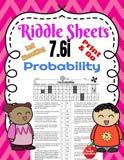



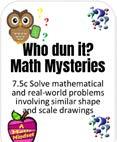

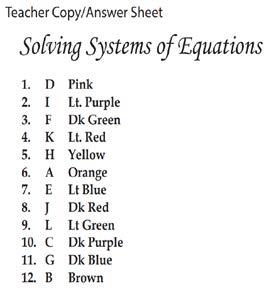

Teachers Making a Difference I mine cal and mental bility Scavenger Hunt by Unknown Author licensed under (c) A Math Mindset 2018 Math Activities for Middle School and Algebra I Ideal for : Engaging Classwork Activities Self Checking Digital Activities Assessments Homeschool Practice Topic: Composite Area Direc�ons: Solve each problem and find the answer in the answer box. Use that le�er to place above the problem number in the answer to the riddle. What is a butterfly’s favorite subject at school? 7 3 5 2 9 8 6 4 8 2 1 A E T M I H S O C 146.52u2 220.48u2 42.14u2 115.47u2 6962.50u2 40.75u2 60u2 123.44u2 159.04u2 7. How many sq units of paint? (door & window not painted) 8. Area of shaded region 9. Area of shaded region 1. Area of shaded region 2. Area of shaded region 3. Area? 8u 10u 26u 34u 8u 12u 12u 15u 4. Area? 5. Area? 6. Area of shaded region 16u 8u 10u 50u 100u 4u 8u 12u 10u 3u 7u 1.5u 14u 10u 12u 12u 10u 14u A Mathmindset 2023 c Moth Composite Teacher Copy/Answer Sheet M O T H E M A T I C S 40.75u2 159.04u2 146.52u2 220.48u2 6962.50u2 123.44u2 115.47u2 60u2 42.14u2
HELP
My Co-Teacher Is A Bully and Admin Won’t Do Anything About It.
by Rivette Pena M.A.
What do you do when you witness unfair treatment of students by a fellow teacher but no one believes you? A teacher wrote to me an asked what he should do. We’ll call this teacher Fred. Fred says that a teacher he works with, we will call her Francine, is a bully to students who are weak and vulnerable.

As time went on, Fred noticed a trend with Francine. She would come down hard on a child that wouldn’t fight back. She would beat them down into submission and embarrass them in front of their classmates. She would ricule the child and write them up for no valid reason. Francine would not take Fred’s proffessional advice Fred was so appalled by her behavior that he sought out the advice of admin.
You see Francine is a very popular teacher at the school she is at. She is very active in all things extra-curricular. Some students are very fond of Francine. She coaches, hosts afterschool activities, makes herself available to admin whenever needed and with a smile I might add. She is seen as an asset to the campus. On the outside, Francine is the kind of teacher every Principle wants on his staff.
She has a firm handle on the curriculum and classroom management. She looked upon highly. At least until there are no eyes around, then her true colors come out. She has an aversion to any kid that is special ed and requires extra attention. They become Fred’s problem. Fred is mild mannered and soft spoken. He does his job and does it well. He is focussed on the success of his students.
Each time he went, admin just looked puzzled. Francine would never act that way. She was so well liked by everyone. Her scores were good and she had little trouble in her classroom. There were no parental complaints so Fred must be overreacting. Her walk-throughs were alll outstanding.
They saw the active, polite and encouraging Francine. They didn’t witness Francine berate a child who Fred had already informed her about. This child who was disheveled and out of sorts. He was not cared for at home and was wearing clothes that were obviously not his. He was embarrassed and exhausted. But Francine zeroed in on his vulnerability. She reprimanded for being slumped over while attempting to do his work.

Teachers Making a Difference Issue 9, April 2023 44
She berated him in front of the class for not paying attention. He needed to sit up straight and do his work. She then called him to her desk. Yes her desk because no one was there to observe so no reason to get up. She continued to yell at him in front of his classmates. She asked if he understood. He replied, “yes”. She corrected ‘just yes?’. He replied , “yes” but she wasn’t satisfied. She wanted Yes Ma’am but didn’t let him know that. He was so shaken he covered his face in an attempt to hide his shame. She then wrote him up for insubordination.
2. Have the children write letters to admin or parents. The parents of his victims may not care or believe these children. Administration may reprimand Fred for stirring the pot and putting the district in a difficult situation.

This student became a victim because he wasn’t well kept. He didn’t carry himself well. He didn’t speak up for himself or excel in ways that Francine found appealing.
Fred has tried everthing and is at a loss. What should he do when his admin doesn’t want to see the truth?

As outraged as I am, I don’t have many answers. We have all worked with those teachers who exhibit duplicitous behavior. How do you reveal the person behind the the curtain?
Every option I consided had repercussions for Fred.

1. Secretly record the behavior. Fred may be reprimanded for violating rights and putting the district in danger of getting sued.
3. Talk to Francine. Fracine has made it clear to Fred that she knows what she is doing and it is none of Fred’s business.
This is a difficult situation to be in Fred and I apologize for not having an answer. I wish you well and I will pray for that teacher’s students.
I am at a loss. If you have any suggestions for Fred please send them to me at articles4magazine@ gmail.com.

Teachers Making a Difference | Issue 9 April 2023 45
I think the hardest thing for me to hear was Fred tell me, “I hope I don’t read about one of these students coming back to shoot up the school because they were bulied by someone who was supposed to make them feel safe and welcome.”
Spring Into Action
 by C&P Educational Consultants
by C&P Educational Consultants
Are you wishing for learning and growth opportunities? We have something great for you.

Come join us for a free workshop that trains you on The Science of Teaching Reading.
Get in on the groundfloor of a lucrative endeveor. We will train you to become a Trainer of Trainers. You can go forth and conduct your own seminars.
Whether you are interested in the Science of Teaching Reading or starting your own side business. Come to this free workshop. Earn six hours of continuing education hours. You will leave with some very engaging activities and methods. You will learn how to integrate reading into other content areas. Join us. All that is required is you filling out the interest form.
Teachers Making a Difference Issue 9, April 2023 46

Teachers Making a Difference | Issue 9 April 2023 47 You Need Training? C&P Educational Consultants are offering an Introduction to the Science of Teaching Reading. 6 hours If you are interested in a FREE training, fill out the registration form below: Information Location, Date and Time will be emailed to all participants. Sign up before all seats are filled. Visit www.testprepcertification.com for information Door Prizes Free Materials Gift Bags Breakfast and Lunch Included





Teachers Making a Difference Issue 9, April 2023 48 WOULD YOU LIKE TO ADVERTISE IN OUR MAGAZINE? Contact us at ads4magazine@gmail.com Visit www.testprepcertification.com for pricing and submission requirements Roy R. Estrada RR E TaxAccounting BusinessServices Start Ups ph: (210) 723-5389 email: roy estrada84@gmail com





















 by Elaine Clanton Harpine, Ph. D
by Elaine Clanton Harpine, Ph. D





 Elaine Clanton Harpine, Ph. D.
Elaine Clanton Harpine, Ph. D.





















































































 by C&P Educational Consultants
by C&P Educational Consultants

























